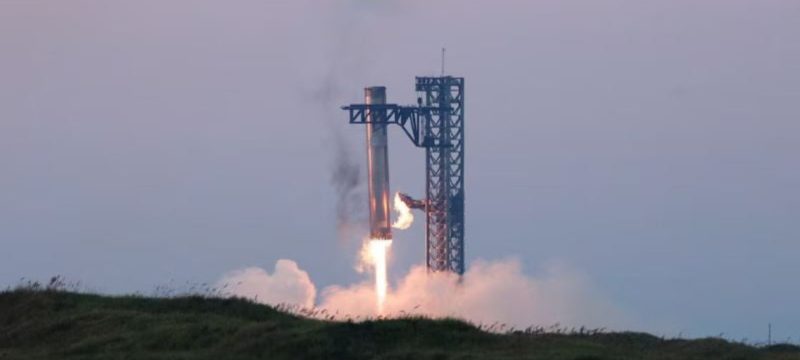SpaceX successfully completed its 99th operational mission of the year, launching 20 Starlink satellites into orbit from Cape Canaveral, Florida, on Friday night. The Falcon 9 rocket lifted off at 7:31 PM ET from Space Launch Complex 40, marking the 17th flight for this particular booster, which was recovered on the “Just Read the Instructions” droneship in the Atlantic Ocean. This mission is a significant milestone for SpaceX as it approaches a new annual record for launches.
With this launch, SpaceX has conducted 71 missions from Florida, just one shy of matching its 2023 record of 72 launches from the Space Coast. The company has been responsible for the majority of these launches, with only five handled by the United Launch Alliance. The latest mission contributes to SpaceX’s rapidly growing Starlink constellation, which now includes over 7,100 satellites launched since 2019, enhancing global internet coverage.
Also Read: NASA’s $100 Billion Moon Mission Faces Backlash Over Delays
Notably, 13 of the satellites launched in this mission come equipped with direct-to-cell capabilities, showcasing SpaceX’s ongoing commitment to improving internet accessibility. In total, 97 Falcon 9 missions have been conducted in 2024, including two Falcon Heavy missions and three test missions of the in-development Starship rocket. The most recent Starship test flight achieved a landmark feat on October 13, successfully capturing the Super Heavy booster mid-air using mechanical arms known as “Mechazilla.”
Despite regulatory challenges throughout the year, including delays tied to environmental concerns and safety regulations, SpaceX’s launch cadence has remained impressive. With projections of up to 144 launches this year, the current total stands at 99 operational missions, reflecting the company’s aggressive push to expand its satellite network. As SpaceX approaches its 100th mission of 2024, it continues to break new ground in rocket reusability and satellite deployment, pushing the boundaries of space exploration technology.









